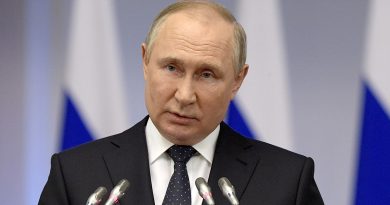North Macedonia Gets Rejected Fromm Joining the European Union
Stephanie Miller
Editor-in-Chief
In an attempt to revive Albanian and North Macedonian European Union (EU) membership prospects, Croatian Prime Minister Andrej Plenkovic announced plans to revamp methods for evaluating potential member states’ readiness, reports Bloomberg.
“We’d like to find a solution unblocking the process with Albania and North Macedonia by the time of the Zagreb summit,” Plenkovic told reporters. “We have a chance to strengthen our influence in Europe and we feel responsible for supporting the European path of our neighbors in the region.”
Croatia’s move for reforms to member state evaluation methods comes as the Central European country takes over as the EU’s president, a rotating position that began on January 1, 2020, and will last approximately six months. It follows French President Emmanuel Macron’s decision to veto Albania and North Macedonia’s beginning membership talks in October 2019- talks that would have taken place during Croatia’s presidency. Macron stated that the EU needed to tighten its vetting processes for states seeking accession.
The continued push for Albania and North Macedonia’s EU membership comes at a time of political and financial turmoil for the two Balkan states. North Macedonia is now headed to snap elections after Prime Minister Zoran Zaev’s resignation over a “politically painful” battle to change the country’s name and resolve a decades-old dispute with Greece, according to Bloomberg Politics. Albanian central bank Governor Gent Sejko wrote that the euro’s continual economic slowdown continued with domestic political tensions tied to Albania’s EU membership snub could trigger “uncertainties and potential shocks to the exchange rate,” shifting it away from the equilibrium.
Since submitting their applications for accession over a decade ago, both countries continue to prioritize alignment with EU standards. Because of this, European Commission President Ursula von ver Leyen insists that the “door is open” for Albania and North Macedonia to join the European Union under current rules, reports Euronews. This statement follows former Commission President Jean-Claude Juncker’s statement in October, which called the bloc’s failure to agree on starting membership talks a “grave, historic error”.
European Commission leaders are not the only ones voicing their dissent over the Balkan states’ blocked accession. According to Radio Free Europe, new U.S. special envoy to the Western Balkans Matthew Palmer labeled Macron’s decision a “historic mistake” that sends “a bad message” to the region. Acting U.S. Assistant Secretary of State for European and Eurasian Affairs Philip Reeker also shares Palmer’s sentiments: he said the United States was “disappointed” with the decision and criticized “certain leaders” in the European Union for holding what he called a “19th-century view” of the Western Balkans.
Due to years of political uncertainty and border disputes, the EU displays a Cparticular reluctance to commit its support to the Western Balkans. However, as the European Council on Foreign Relations points out, nationalist leaders will exacerbate tensions with neighboring countries in the region should EU’s support and influence wane. France’s veto on North Macedonia’s EU membership prospects could threaten the future of the Prespa Agreement with Greece, and the overlapping ethnic identities with the Serbian Orthodox Church continuously exacerbates tensions in Kosovo, Montenegro, Serbia, and throughout the Balkans.
Luckily, it appears that the tide may be shifting in Albania and North Macedonia’s favor. French Presidential Advisor for European Affairs Clément Bonnet reportedly stated that France could still withdraw from blocking accession talks with Albania and North Macedonia, according to European Western Balkans with the Centre for Contemporary Politics in Belgrade.
“Now that the UK has left the EU,” Bonnet said, “France wants to switch its focus towards the East. After Brexit, it is more important than ever to overcome differences within the EU and focus on what brings us together.”



